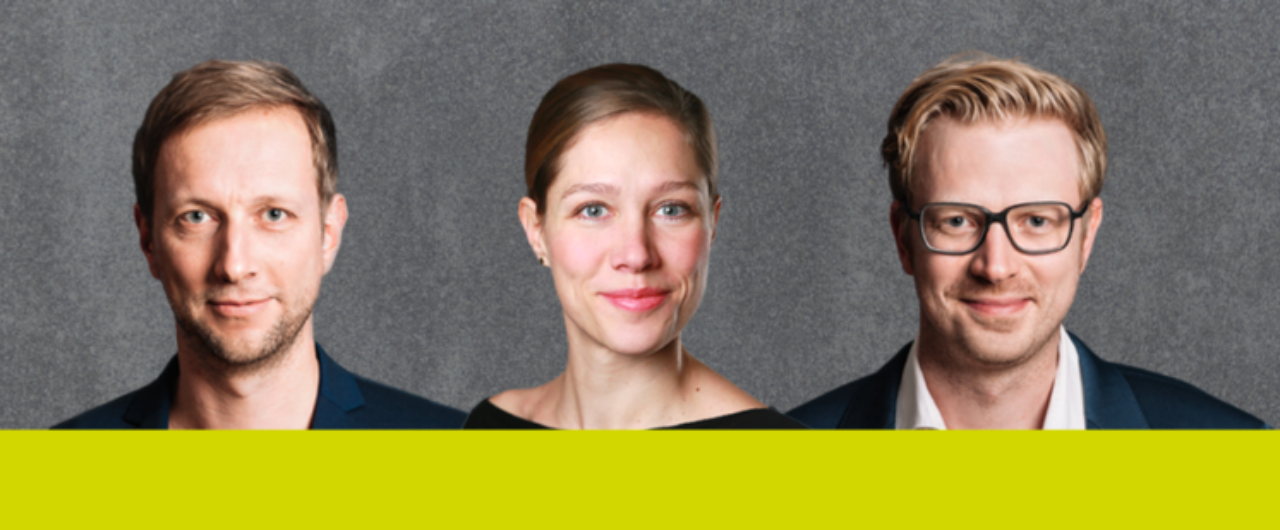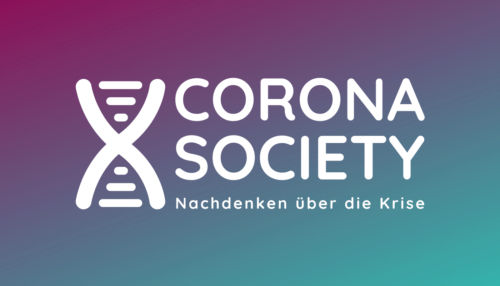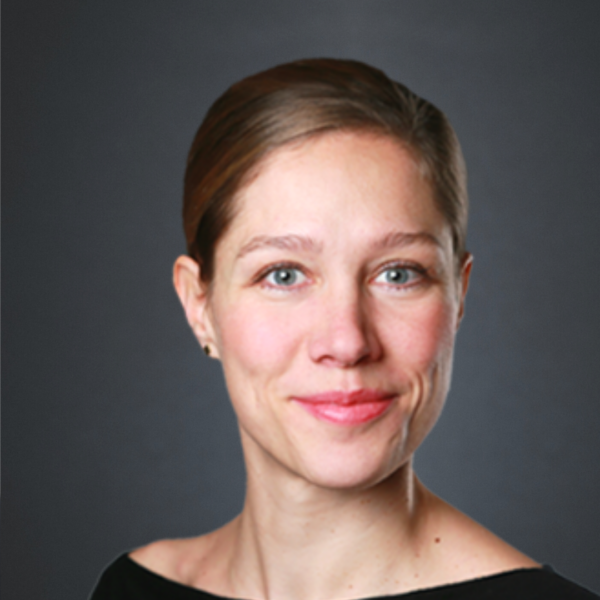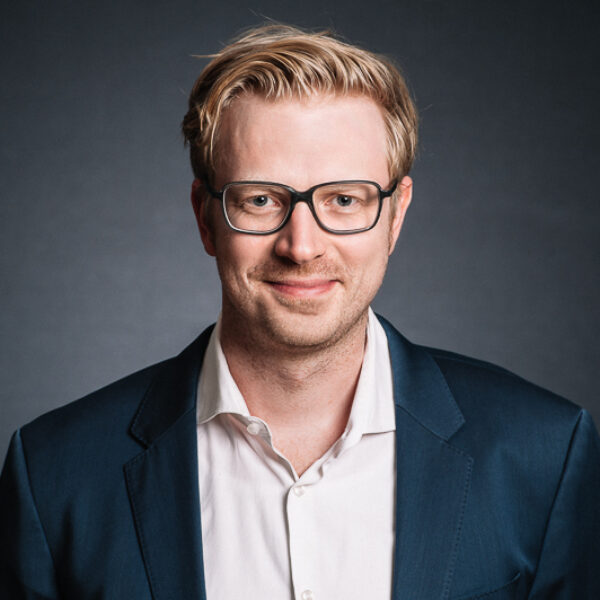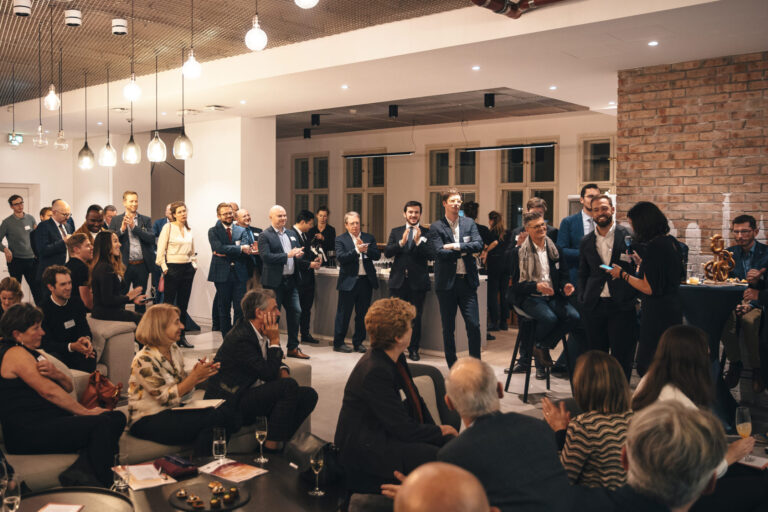Tomorrow’s policies must be both visionary and efficient to meet the challenges of the pandemic and its aftermath. Our board members Michael Miebach and Judith Siller and our executive director Dominic Schwickert explain why progressive ideas belong on the agenda right now and take an optimistic look at 2021.
Dear Friends,
Covid-19 is putting people in Germany and around the world to a stern test. Whether the healthcare system, the economy, schools, or politics: with a disruptive force, the virus is imposing a perpetual feeling of stress on all parts of society. Will it permanently change our lives? That is yet to be decided. But one thing is already certain: the pandemic is reshaping the framework for progressive politics for the years to come. It reinforces existing societal development trends and political fault lines as if in a sped-up reality.
Experts have pointed out the negative economic and social consequences of growing inequality for years. The Institute of Economic and Social Research has determined that low earners during the Coronavirus Crisis more often, and over proportionally, record income losses. In contrast, workers with middle and higher incomes are much less affected. People with immigrant backgrounds and single parents suffer, especially from employment-related restrictions. These are groups that already have a much higher rate of poverty risk. To this point, it is often the children of the poorest who are most affected by the closed schools and recreational facilities. There is no doubt about it: Corona deepens social division and threatens cohesion.
Greater urgency, less leeway
For these reasons, the political goals that progressives have been promoting for so long have now become even more important: fair pay in all lines of work. Investments for the future in education and digitalisation, to protect the climate and in the public sphere. Equal living standards between regions. Far-seeing social policies for equal opportunities. A socially fair tax policy. Ecological and sustainable economic and social transformation. Proactive integration politics. The main underlying challenge is that the sense of urgency is now more present than ever. Yet the – completely justified – newly taken on loans, financial commitments, and the foreseeable financial losses all narrow the possibility for political manoeuvring for the future. The politics of tomorrow need to be visionary and efficient at the same time.
Furthermore: Will the people be ready to move forward with the necessary transformation processes during and after the pandemic? After all, a desire for the “old life” has been arising during the corona-induced restrictions – for the familiar safety and ways of behaving, for a vacation in foreign lands, and uninhibited shopping. It is true that the Coronavirus Crisis also has a “solidifying potential” (Reinhart Koselleck).
A new progressive consensus of the majority?
On the other side, a World Economic Forum poll from September reports that most Germans (78 per cent) hope that after the pandemic, the world will “significantly change” to be more sustainable and fair. The global average is at 86 per cent. Norms and thought patterns, work models and movement behaviours may be currently changing, possibly even in such a fundamental manner that the changes could actually prove permanent. To give an example rarely has the conduct of democratic governments been met with so much approval and trust in public institutions and infrastructure, like today. Another positive effect of the pandemic could be a new consciousness of societal vulnerability and the importance of science, with which a larger acceptance of engaging climate policies could emerge. In the best case, a new progressive consensus of the majority emerges.
Further Reading: Our Blog
Corona & Society – Reflecting on the Crisis
What can society and politics learn from the crisis, both politically and conceptually?
Progressive politics can and should turn the potential of the Corona Crisis into a window of opportunity. The future is not guaranteed – chances must be seized, or they will merely be missed opportunities. Progressive actors must remain wide awake, especially now. They need to campaign for reforms, but also take the need for security seriously. Security and change are inseparable and moreover, belong together. Joe Biden and Kamala Harris winning the presidential election in the United States brings hope that we can also have a fresh start on the international level for multilateralism, climate protection, and cooperation.
Germany at a turning point
We at Das Progressive Zentrum for these reasons, despite everything, are optimistically looking forward to a politically meaningful 2021. Germany is facing six state elections and a federal election, which will mark the end of the Merkel era and signify a new chapter. As an independent think tank, we will closely follow the upcoming political campaigns. We will create room for programmatic debates, formulate a range of political frames, suggest solution-oriented policy concepts – and continue to intensively work on strengthening liberal democracy and evidence-based politics.
As we move into 2021, we can build upon a successful past year. Given the restrictions of the public and private life, we focused on the digitalisation of our work and made significant progress. In the last twelve months, we organized four international conferences, numerous events that provided a forum to some 300 speakers from Germany, Europe, and the world, collaborated with over 40 partner organisations from 15 countries, and published more than 50 studies, expert opinions, and other publications. As a whole, it was very fulfilling for us all, even when – without a doubt – we miss the good spirits of in-person events, conversations during the coffee breaks, and spontaneous encounters.
We will continue our work after the holidays, in full vigour and hopefully with many of you. Until then, we wish all of our friends a peaceful holiday season and a good start to a hopefully healthy new year.

